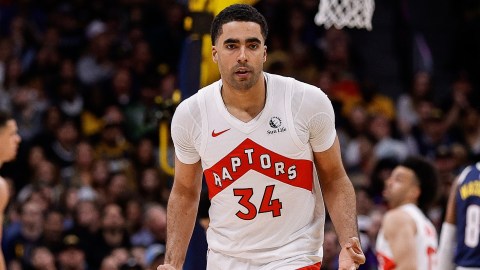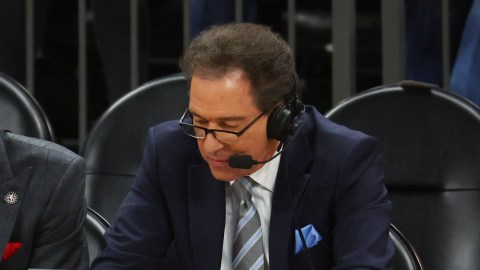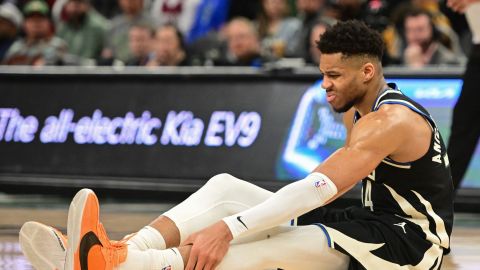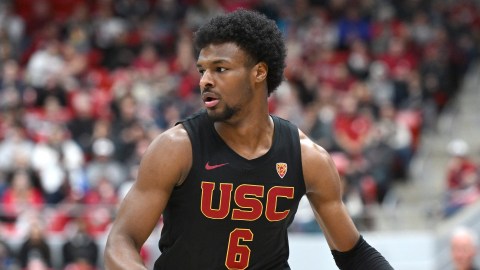The NBA's owners and union representatives spent Monday night haggling over — and still failing to find common ground on — their ever-elusive collective bargaining agreement.
And almost nobody cared.
More than 10 million people were too busy watching the Bears and Lions go at it on Monday Night Football. They wanted to talk about Calvin Johnson a.k.a. Megatron's catch or Jay Cutler's dual personality — not the NBA lockout. Even when commissioner David Stern announced just before halftime that he's cancelling the first two weeks of the season, only a slight tremor rumbled through the sports world.
Ho-hum. We all saw it coming, anyway.
It wasn't always that way, of course. The 2010-11 season, after all, was one of the more successful in league history. The free agent frenzy last summer, "The Decision," the Heat-Celtics series, the Finals — they all added up to sizable gains in TV ratings, merchandising and attendance at games.
So when talk of a lockout first began in the midst of all that, concern and discussion from fans poured in. How far apart are the two sides? Will this hurt veteran teams like the Celtics and Lakers or help them? Will Brian Scalabrine bring his talents to Italy?
It seemed difficult to imagine no season after one filled with such drama.
Then Americans, especially American sports fans, did what we always do. We grew numb to it, found something else to occupy our time. The same way we do with news. When was the last time you heard anything about earthquake relief in Japan or Haiti? Or Casey Anthony?
We are living in a truly ephemeral, feed-me-now age. And if one source of entertainment fails us or begins to bore us, there are countless others waiting.
When basketball's not on come Nov. 1, in other words, too bad. We've got football, or the World Series, or hockey or college hoops to fill that void.
The NFL and its players understood that. Like their NBA counterparts, they were coming off an incredibly successful season — $9 billion in revenue, more than any other sports league — and were desperate to maintain that momentum. Sure, they weren't quite as far apart on the numbers as are the NBA and its union, but they were fully aware that a break in the action could leave fans looking elsewhere for their sports fix.
So they got something done. Both sides gave a little on revenue demands, the season started on time, and commissioner Roger Goodell issued a statement to fans apologizing for "the frustration we put them through the last six months."
All signs are that the NFL, partly because it got its act together in time and guaranteed the fans 10 years without another contract dispute, will be more popular this year than ever before.
Stern? In making his cancellation announcement Monday night, he seemed like he always does — entitled, arrogant and out-of-touch with fans. And he offered little hope of any progress in the near future, saying "the gap is so significant we just can't bridge it at this time."
That gap he's referring to is $120 million. Sounds like a lot, but it's a mere three percent of the league's $4 billion in annual revenue. That equates to millionaires fighting with multi-millionaires/billionaires over relative pennies.
We as fans can't relate to that. And because that battle is being waged so publicly, when the season does finally start — we'll be so out-of-touch and disillusioned with the product that we won't care to turn it on. Exactly the way it happened after the 1998 lockout. People stopped showing up to the games, didn't even want to watch them on TV.
"And I think it will take us even longer to recover this time around," union head Billy Hunter acknowledged Monday after Stern’s announcement. That means the owners and players could be looking at a loss far greater than the $120 million at the center of their discord.
Add in the fact that the NFL, hockey, college football and college basketball are all more popular now than they were in 1998 — and the NBA is looking squarely at a reap-what-you-sow situation.



